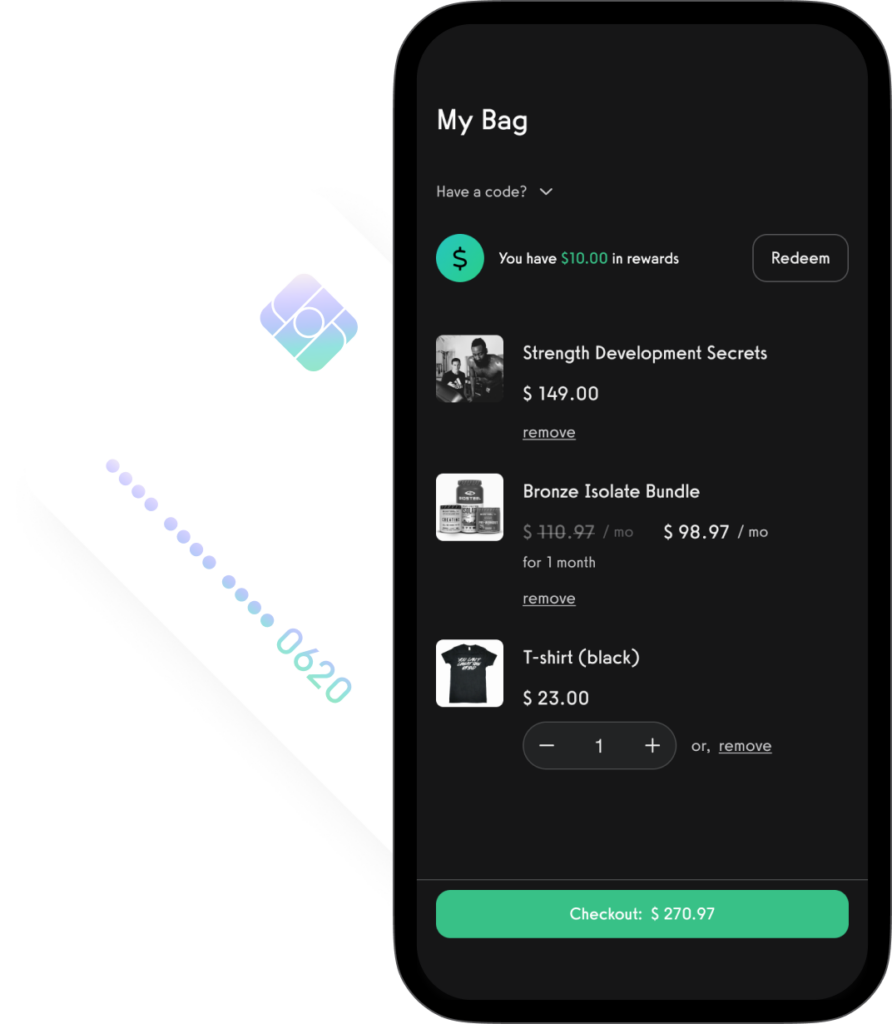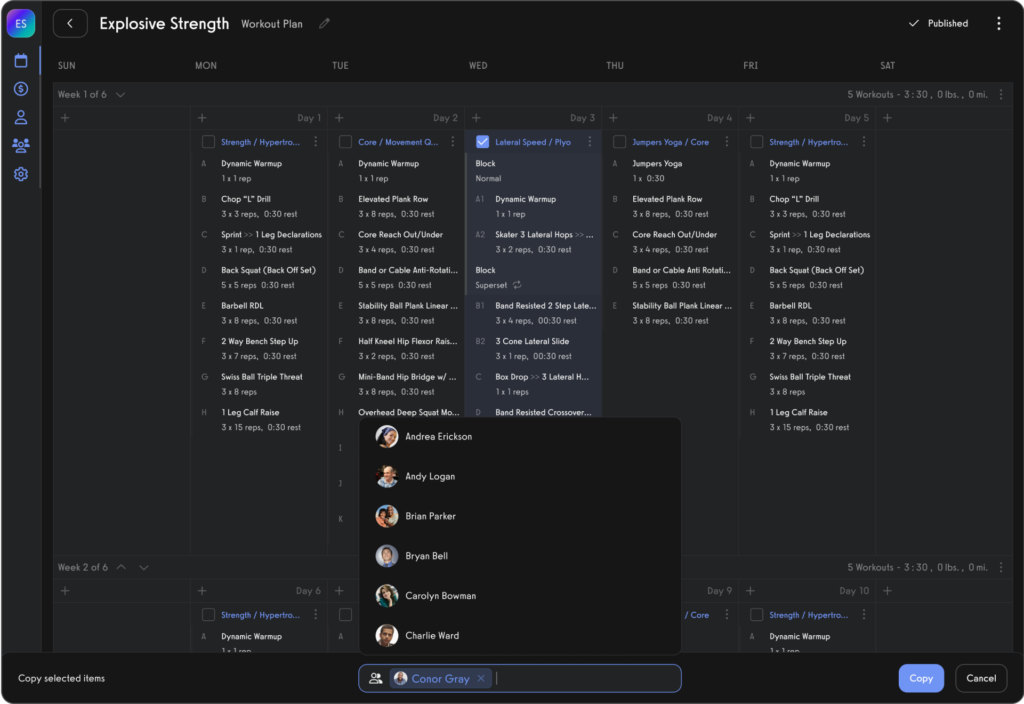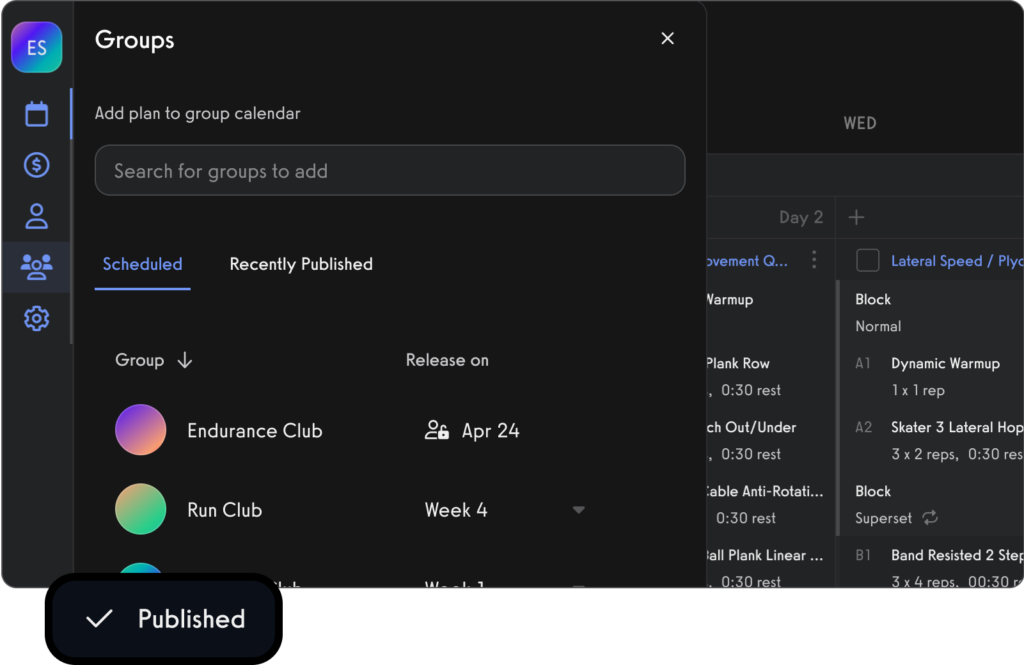
Use this free personal trainer price list template to publish your personal training prices.

Are you a personal trainer looking for a convenient and efficient way to organize your pricing structure? Look no further than the free personal training price list template below! Additionally, we will explore why using a PT price list template can benefit your business, the key elements to include in your template, and provide a step-by-step guide to creating an effective price list. We will also discuss tips for designing an eye-catching and user-friendly template, best practices for pricing your services, and different pricing models for personal trainers.
We will delve into factors to consider when setting prices for personal training sessions, strategies for increasing client value without decreasing prices, and effectively communicating your pricing structure to potential clients. Finally, we will touch on the importance of building trust and transparency through a well-designed price list template, common mistakes to avoid, and the power of tracking and analyzing the effectiveness of your personal training pricing strategy. Be sure to also check out the free gym price list template and the guide to gym pricing strategy.

Looking for a personal trainer price list template? This article provides a comprehensive guide on creating a professional and effective price list for personal trainers.
And, of course, managing your fitness business online with the best gym management software and the best personal training software means that you can easily manage your business online with software that automates your business and saves you time. Communicate with members and clients with email, SMS, and in-app messaging marketing cadences, you can create fitness session plans, waivers, forms, fitness assessments, lead forms, registration forms, offer online booking, workout plans, and much more.
Send personal training price lists online to your clients.

Process payments easily online or in-person with the best gym payment processing software and the best apps for personal trainers who want their very own fitness app.

Use the Exercise.com workout plan creator to create your workout plans and fitness assessments.

Publish your custom branded fitness apps to iOS and Android so you can offer a premium experience to your community.

Run fitness challenges, create online workout groups, do distance training, and of course, deliver fitness assessments and workouts, all right within the Exercise.com platform (custom branded to your brand).


“Developing an easy intake system with my apps and ways to scale the delivery of workouts has been huge. Working with 20-30 individuals who each have specific goals and restrictions can be challenging, but your platform makes it easy to organize everyone’s programs and put a plan together that will get them the best results possible. The simple, effective tools help expand and simplify my coaching process.”
Dean Somerset Owner, Somerset Fitness[Your Business Name or Your Name – Personal Training]
Personal Training Services and Pricing
Welcome to [Your Business Name]! Our goal is to provide you with personalized, effective fitness training that meets your specific needs. Below is a list of our services and their corresponding prices.
Individual Training Sessions:
Group Training Sessions (per person):
Specialized Training Programs:
Online Personal Training:
Additional Services:
Promotional Offers:
Contact Information:
[Your Phone Number]
[Your Email Address]
[Your Website]
Urban Fitness Studio – Personal Training
Individual Training:
Group Training (3-5 people):
Bootcamp (6 weeks): $150 per person
Online Coaching:
Fitness Assessment: $30
Body Composition Analysis: $25
New Client Special: 20% off first package purchase
Referral Program: 10% off next purchase for each referral
Elite Performance Coaching – Personal Training Services
One-on-One Training:
Duo Training (price per person):
High-Performance Athlete Program (12 weeks): $1,200
Remote Training Program:
Wellness Workshop: $40 per session
Sport-Specific Conditioning Assessment: $50
Introductory Offer: First session free for new clients
Loyalty Program: 5% off after 20 sessions
These personal training price list examples provide a clear and comprehensive view of the services and pricing structures for personal trainers in different settings. These templates can be customized to suit the specific offerings and pricing strategies of your training business.

“Working with Exercise.com and their team has been an amazing experience and a dream come true in terms of accomplishing a vision! Their workout technology has helped us effectively engage our community, and I highly recommend Exercise.com to grow your business!”
Andrew Banner Co-Founder, AMPD Golf PerformanceAs a personal trainer, your time is valuable, and you want to focus on what you do best – helping your clients achieve their fitness goals. A personal trainer price list template allows you to streamline your pricing structure, saving you time and effort. With a template, you can easily update and adjust your prices as needed, ensuring that you are always providing accurate information to your clients. Additionally, having a standardized price list will give your business a professional and organized appearance, instilling confidence in potential clients.
Having a clear and transparent pricing structure is crucial for any business, including personal training. By clearly outlining your prices, you avoid confusion and prevent potential misunderstandings with your clients. A well-defined pricing structure also allows clients to easily compare and evaluate different personal trainers, making it more likely that they will choose your services. Moreover, a clear pricing structure demonstrates your professionalism and commitment to honesty, which can go a long way in building trust with your clients.
A personal trainer price list template can benefit your business in numerous ways. Firstly, it saves you time by providing a pre-designed framework where you simply need to input the relevant information. No more wasting time creating pricing documents from scratch! Secondly, a template ensures consistency in your pricing, helping you avoid pricing discrepancies or mistakes. Moreover, a well-designed template can enhance the visual appeal of your price list, making it more enticing and memorable for potential clients. Finally, a template allows you to easily update and adapt your pricing structure as your business grows and evolves.
When creating your personal trainer price list template, it’s essential to include all the necessary elements that provide your clients with a comprehensive understanding of your pricing structure. Here are some key elements to consider:
Begin by listing all the services you offer as a personal trainer. This could include one-on-one training sessions, group classes, nutrition counseling, or customized workout plans.
Outline the different pricing packages available to your clients. Offer a variety of options to cater to different budgets and fitness goals. For example, you could have a per-session rate, monthly packages, or discounted rates for long-term commitments.
Provide a clear and concise description of each service, highlighting its benefits and what clients can expect to achieve. This will help potential clients understand which service best aligns with their fitness goals.
Specify the duration of each session or package you offer. This will give clients an idea of the time commitment involved and allow them to plan their schedules accordingly.
If there are any additional fees or options available, such as add-on services or equipment rentals, make sure to include them in your price list. Transparency is key to avoiding any surprises for your clients.
Clearly state your payment methods, whether it’s cash, credit card, or online payment platforms. Additionally, outline your cancellation policies to avoid any misunderstandings or disputes down the line.
Don’t forget to include your contact information, such as your phone number, email address, and website. This makes it easy for potential clients to get in touch with you for inquiries or bookings.
Now that we have discussed the key elements to include in your price list template, let’s dive into a step-by-step guide to creating an effective price list:
Before creating your price list, it’s important to determine your pricing strategy. Consider factors such as your target market, competition, overhead costs, and desired profit margins. Conduct market research and assess what other personal trainers in your area are charging to ensure your prices are competitive and fair.
Clearly define the services you offer as a personal trainer. This will help you understand the value and time commitment associated with each service, allowing you to set appropriate prices.
Explore different pricing models used by personal trainers, such as hourly rates, package deals, or value-based pricing. Assess the pros and cons of each model and choose the one that aligns best with your business objectives and target audience.
Take into account your overhead costs, including rent, equipment, insurance, and marketing expenses. By calculating your costs, you can ensure that your prices cover your expenses while still providing a reasonable profit.
Based on your research, pricing models, and costs, it’s time to set your prices. Consider factors such as the value of your services, your experience and expertise, and the demand in your market. Be sure to strike a balance between being competitive and valuing your skills and qualifications.
Use your creativity and design skills to create an eye-catching and user-friendly price list template. Incorporate your branding elements, such as your logo and color scheme, to enhance brand recognition. Ensure that the layout is clean and easy to read, with clearly defined sections for each service and pricing package.
Before finalizing your price list template, seek feedback from colleagues, friends, or current clients. They can provide valuable insights and suggestions for improvement, ensuring that your template is both visually appealing and effective in conveying your pricing information.
Remember that your price list template is not set in stone. As your business grows and evolves, you may need to update and adapt your prices, services, or package options. Regularly review and analyze the effectiveness of your pricing strategy to ensure that it aligns with your business goals and meets the needs of your clients.
A well-designed personal training price list template can make all the difference when it comes to capturing the attention of potential clients. Here are some tips to help you design an eye-catching and user-friendly template:
Avoid clutter and opt for a clean and professional layout. Use ample white space and clear sections to enhance readability and make it easy for clients to find the information they need.
Add your branding elements, such as your logo and color scheme, to the template. This not only boosts brand recognition but also makes your price list visually consistent with your overall brand identity.
Opt for a legible font that is easy on the eyes. Avoid overly decorative or trendy fonts that may sacrifice readability. Stick to a font size that is neither too small nor too large.
Introduce visual elements, such as icons or images, to make your price list more engaging and visually appealing. For example, use icons to represent different services or package options.
Use bold or different font styles to highlight key information, such as prices, package names, or special offers. This draws attention to important details and makes your price list more scannable.
Organize your pricing information in a logical and intuitive manner. Use headings, subheadings, and bullet points to break down complex information into digestible sections.
As more people access the internet on their mobile devices, it’s important to ensure your price list template is mobile-friendly. Test the responsiveness of your design on different devices to provide a seamless user experience.
Pricing your personal training services can be a challenging task. However, with these best practices in mind, you can set prices that are fair, competitive, and reflective of the value you provide:
Conduct thorough market research to understand what other personal trainers in your area are charging. This will give you a general idea of the price range and help you position yourself competitively.
Your qualifications, certifications, and years of experience should be taken into consideration when determining your prices. Clients are often willing to pay a premium for trainers with extensive knowledge and a proven track record.
Identify what sets you apart from other personal trainers in your area. Do you offer specialized training programs? Are you known for achieving exceptional results? Use your unique selling proposition to justify higher prices.
Provide a range of pricing packages to accommodate different budgets and fitness goals. By offering options, you can appeal to a broader audience while maximizing your revenue potential.
Increase the perceived value of your services by offering additional benefits or bonuses. This could include personalized meal plans, access to exclusive resources, or ongoing support outside of training sessions.
Regularly review and analyze your business expenses to ensure that your prices cover your costs while allowing for a reasonable profit margin. Keep in mind that your pricing should be sustainable in the long term.
Periodically reassess your pricing strategy and make adjustments as needed. Factors such as inflation, changes in market demand, or evolving industry trends may necessitate price updates to remain competitive.
Determining the right pricing strategy for your fitness business requires careful consideration of several factors. Here are some steps to help guide you:
Identify your ideal clients and understand their demographics, preferences, and purchasing behaviors. This knowledge will inform your pricing strategy and help you tailor your services to meet their needs.
Study your competitors and analyze how they price their services. Look for gaps or opportunities in the market that you can capitalize on, such as offering premium services at a lower cost or targeting a niche market.
Analyze your business costs, including rent, equipment, certifications, marketing, and administrative expenses. Determine how these costs factor into your pricing strategy to ensure profitability and sustainability.
Your unique value proposition is what sets you apart from your competitors. Evaluate your strengths, such as specialized training programs, a proven track record, or exceptional customer service, and use them to determine your pricing strategy.
Set realistic profit goals for your business and calculate the revenue you need to achieve them. Consider factors such as your desired income, the number of clients you can serve, and the expected duration of client engagements.
Experiment with different pricing models, such as tiered pricing, membership packages, or pay-as-you-go options. Monitor the results and gather feedback from clients to determine which pricing model resonates best with your target market.
If you’re unsure about determining the right pricing strategy, consider seeking advice from a business consultant or financial expert who specializes in the fitness industry. They can provide valuable insights and help you make informed decisions.
Personal trainers have various pricing models to choose from, each with its own advantages and considerations. Here are some common pricing models used by personal trainers:
Charging clients based on an hourly rate is a straightforward pricing model. This model is suitable for personal trainers who offer one-on-one training sessions and allows for flexibility in scheduling. However, it may not be the most scalable or profitable option.
Package deals involve offering clients a set number of sessions or services for a discounted price. This model encourages clients to commit to multiple sessions, ensuring a more consistent income for the personal trainer. It also promotes client loyalty and provides an opportunity to upsell or cross-sell additional services.
A personal training monthly retainer can provide solid recurring revenue and certainty around exactly how much revenue will come in each month.
Personal trainers typically charge anywhere from $30 to $100 per hour, depending on factors like location, experience, specialization, and the type of training offered. Prices can vary significantly based on the trainer’s qualifications and the market demand.
Posting prices online can be beneficial for personal trainers as it offers transparency and can help potential clients make informed decisions. It can also filter inquiries to those who are comfortable with your pricing structure.
Charging for a workout program depends on the complexity of the program, the duration, your expertise, and the market rates. Prices can range from $50 for a basic plan to several hundred dollars for a comprehensive, multi-week program with ongoing support.
For a 1-hour training session, consider charging based on your experience, qualifications, and local market rates. Typically, trainers charge between $30 to $100 per hour, with higher rates for specialized training or significant expertise.
Most online personal trainers charge between $50 to $200 per month, depending on the level of personalization, frequency of program updates, and the extent of client-trainer interaction. Some may charge per session or offer package rates. Use the best online fitness coaching software to make this process seamless.
When setting prices for online personal training, consider factors like your time investment, the level of customization in your programs, and additional support services you offer. Prices can range broadly, but ensure they reflect the value and quality of your services.
Exercise.com can help you charge your personal training clients by providing a comprehensive software platform with integrated billing and payment processing. It allows for easy creation of invoices, management of different pricing plans, and secure processing of payments, simplifying the financial aspect of your training business.

Excellent choice for my business! I tried nearly all the “major” platforms and found Exercise.com to be the most intuitive.